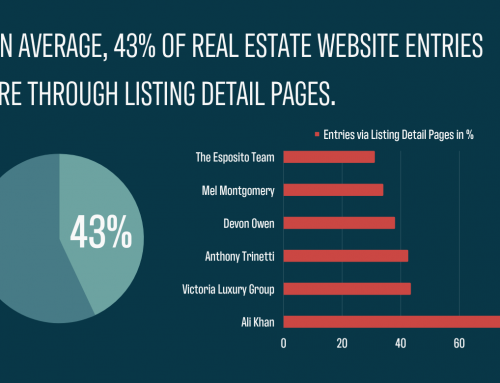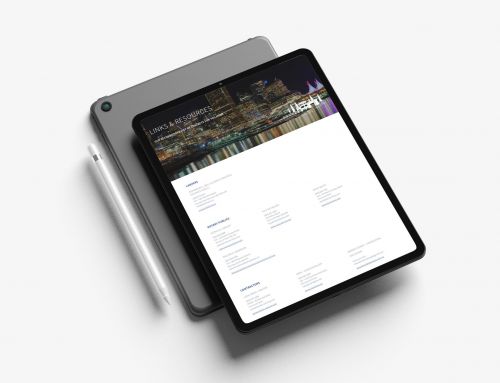Blogging Tips and Inspiration For Real Estate Websites – Part 1
The Ultimate Guide for Real Growth in Google™ Traffic and Human Engagement.
It seems daunting, we know. But as Stephen Covey said, “Always begin with the end in mind,” and regular blogging has huge benefits for those in real estate.
First, let’s explore how blogging helps, and content ideas to write about.
Why Keep A Blog on a Real Estate Website?
It’s for both Google™ bots and human visitors. Well-written blog articles help your website rank higher for real estate related searches, thus helping you connect to new buyers/sellers.
Impact on Google Ranking – How Blogging Gets More Traffic
If you already understand why regular blogging with unique content is helpful for Google ranking, you can skip to the Best Practices for Blogging section below.
Google crawls all the websites in the world constantly and updates their search results. Majority of Realtors® have MLS® IDX, meaning they are serving duplicate content as REW.ca, Realtor.ca, Zillow, Redfin and so on. Google won’t consider those to be special. Unique content such as “Real Estate Sales Stats in False Creek Flats” will be catalogued by Google™ as original, and it will scan the linked MLS® result pages such as “False Creek Flats Condos for sale” with higher priority.
What Googlebots Like To See On Real Estate Websites:
- Unique content related to real estate and the niche area of focus
- Well-written headings that describe the paragraph well, with proper hierarchy
- Relevant links to related MLS® listing results or credible 3rd party webpages
- Listing details and specs displayed with cleanliness and readability
Impact on Lead Gen – How Blogging Builds Credibility
Ultimately, you want to convert more visitors to interested leads. An informative and up-to-date blog sends a message that you are a competent and diligent real estate professional. Plus, sharing useful blog posts on social media and email newsletters is easier than ever, so you can get human eyes on them even before your search traffic starts to build up.
Blogging really does hit two birds with one stone.
Best Practices for Blogging On Your Real Estate Website
1 – Write blogs for humans first, not the algorithm!
Google’s main revenue source is ads shown to their search users. Their profits hinge on delivering organic results that people find useful. Google’s algorithms keep evolving to weed out unhelpful content that appears fabricated just for ranking, and prioritise content that humans will love. Even if most people briefly skim through them, having well-written blog posts makes a positive impression and builds trust.
Write blogs that people will find interesting.

2 – Keep A Consistent Cycle and Frequency
Many Realtors, especially solo agents, eagerly start blogging heavily. After pumping out 6 articles in a month, they get swamped with showings, and drop the ball. It’s better to have 10 articles in a year with an even distribution than a cluster of articles followed by a long gap. When your latest post is over a year old, it looks like you’re out of business.
Consistency beats rise and fall in content volume.
3 – Plan Posts and Draft Content Ahead of Time
Planning your blog posts ahead saves time and mental energy, while making it easy to keep a consistent frequency. It also gives you a birds-eye view of past and upcoming articles. Draft several articles in your downtime, then post them on specific intervals.
We use Asana to plan our blog articles, and Google Docs to draft the content.
Real Estate Blog Post Topic Ideas and Inspiration
Topic Idea #1 – Showcase Your Listings and The Sales Progress
This is the easiest and lowest hanging fruit – you talk about your listings all the time anyway, right?
Tips When Posting About Your Listings
You need more than just a photo of the listing with “Just Listed – [Address]” under it. The post needs reasonable content volume and structure to have an impact on Google™.
Use One Or Two Photos, Then Link To The Full Listing Page
Your goal is not to replicate your listing detail page. Internal linking is one of the best ways to signal to Google what’s on the centre stage. Embed a photo or two that links to the actual listing page where people can see more photos and the asking price. You can also link to other listings in the same subarea/city (if you have MLS® Reciprocity enabled on your website).
Don’t Repeat The Same Listing Description – Write Unique Content Each Time
Duplicate content is ignored by Google. Write a casual announcement of a new listing, where it is, and/or when the open house is. If it sold, mention how much interest (number of visitors, showings and offers) it received in how many days on the market. Mention a few highlights of the listing and the location. This listing showcase of a Shaughnessy (Vancouver) Townhome is a great example.
Yes, You Can Post Multiple Times About The Same Listing
One listing can have 2 or more blog posts about it (when it lists, when it sells, and open houses etc.). Make sure they all contain links back to the full listing detail page, with different photos and write-ups on each post. You can also directly embed the Youtube tour video into a blog post instead of just photos.

Topic Idea #2 – Real Estate Market Updates In Your Area
Who wouldn’t prefer a Realtor® who pays attention to the stats and trends?
Don’t Be A Copycat – Here’s How To Write Them Properly
Many agents post a screenshot or copy-paste a newsletter from their real estate board or news website. This is counter-productive, since Google ignores duplicate content. It also makes you look lazy.
Paraphrase in Your Own Words, With Added Focus On Your Niche
If you can’t re-phrase real estate market conditions in your niche area, you really shouldn’t be a Realtor® at all. Describe the market in your own words, with more emphasis on your niche – whether it be a specific region (i.e. listing and sales ratios in Fraser Valley), or compare to other relevant areas (i.e. sales ratio of detached houses in Toronto vs North York).
Place Links to Relevant MLS® Search Results Based On The Context
Linking to relevant MLS® search results within your own website gets more listings and pages on your website crawled by Google™. This blog post on Vancouver’s October real estate market trends shows many example links (requires MLS® Reciprocity with URL-based search capacity).
Video Tutorial: Generate MLS® Result URLs on Brixwork Real Estate Websites
Link Out To Previous Posts Or Reputable 3rd Party Websites
Google likes well-linked content, both internal (within your own website) and external (other websites). When comparing one month to the previous month, link back to the last months’ blog post. You can quote a reputable news article too, like in this post by a Langley real estate team discussing lower fixed-rate mortgages, or your local real estate board’s newsletter page (make sure they open on a new window/tab).
Don’t Have The Time To Learn And Execute All Of This?
Spending several hours a week to craft quality content may not be possible for busy real estate agents. Our dedicated SEO program for real estate takes care of custom content writing and ongoing website improvements (better headings, links, and navigation) to build solid organic ranking.
Topic Idea #3 – Local Attractions, Events and Presales
Show that you are an engaged neighbour, not just some commission-hungry salesperson.
Highlight The Fun Lifestyle Factors of Your Area
Take note of this Sunshine Coast Realtor’s Roberts Creek parks & nature feature, or this gym, yoga and fitness facilities showcase in False Creek Flats (Vancouver). Embed a photo from the business, with a brief introduction written in your own words. Don’t forget to link to the official website. A Google Maps™ direction link gives you bonus points.
Showcase Upcoming Events or Presales In Your Local Area
This Vancouver Real Estate Team’s Fall Events post exemplifies smart internal links to relevant MLS® listing results. You may highlight a new presale, like Colin & Lynn did with Monogram in Downtown Vancouver. This is even more powerful with a presale/building feature module to link to (a premium module we offer).
Part 2 of Blogging Tips for Real Estate Websites Coming Soon
That was a lot to read, wasn’t it? This will get you brainstorming your upcoming blog posts. Part 2 of this tutorial series will focus on the technical details of how to format and organise each blog post (December 2024)!








